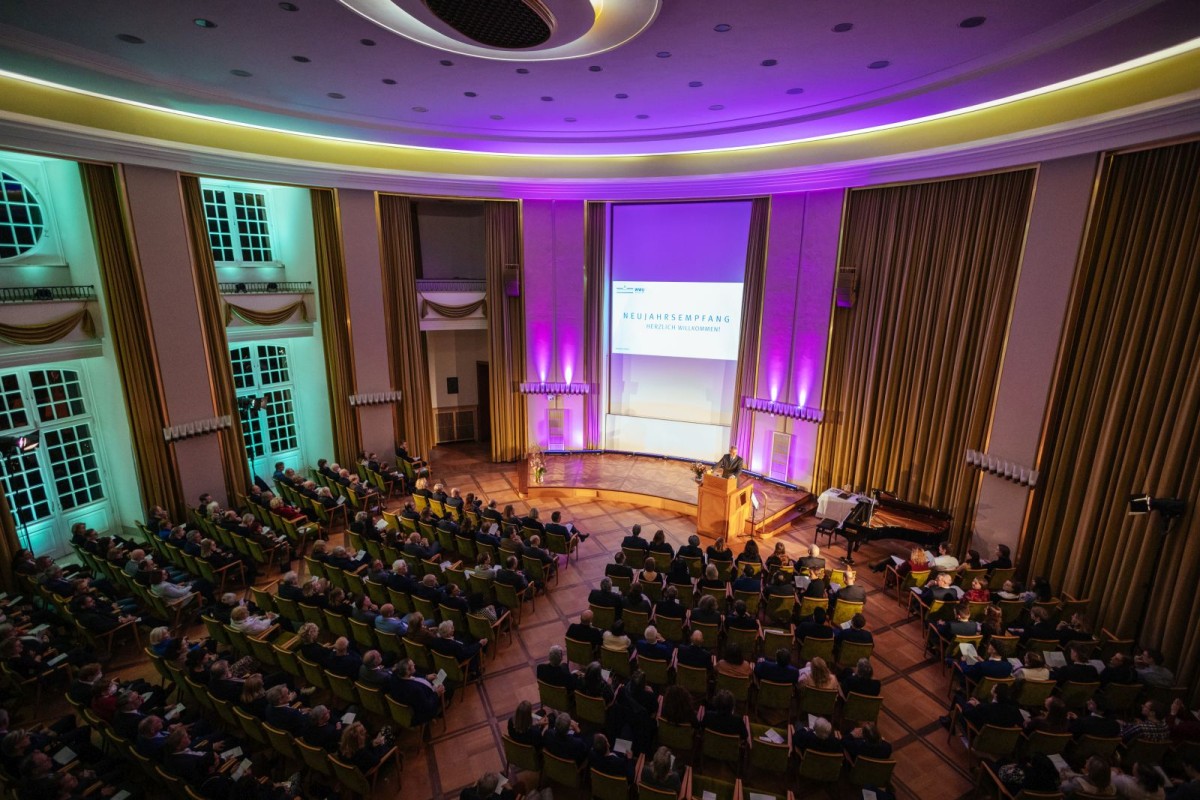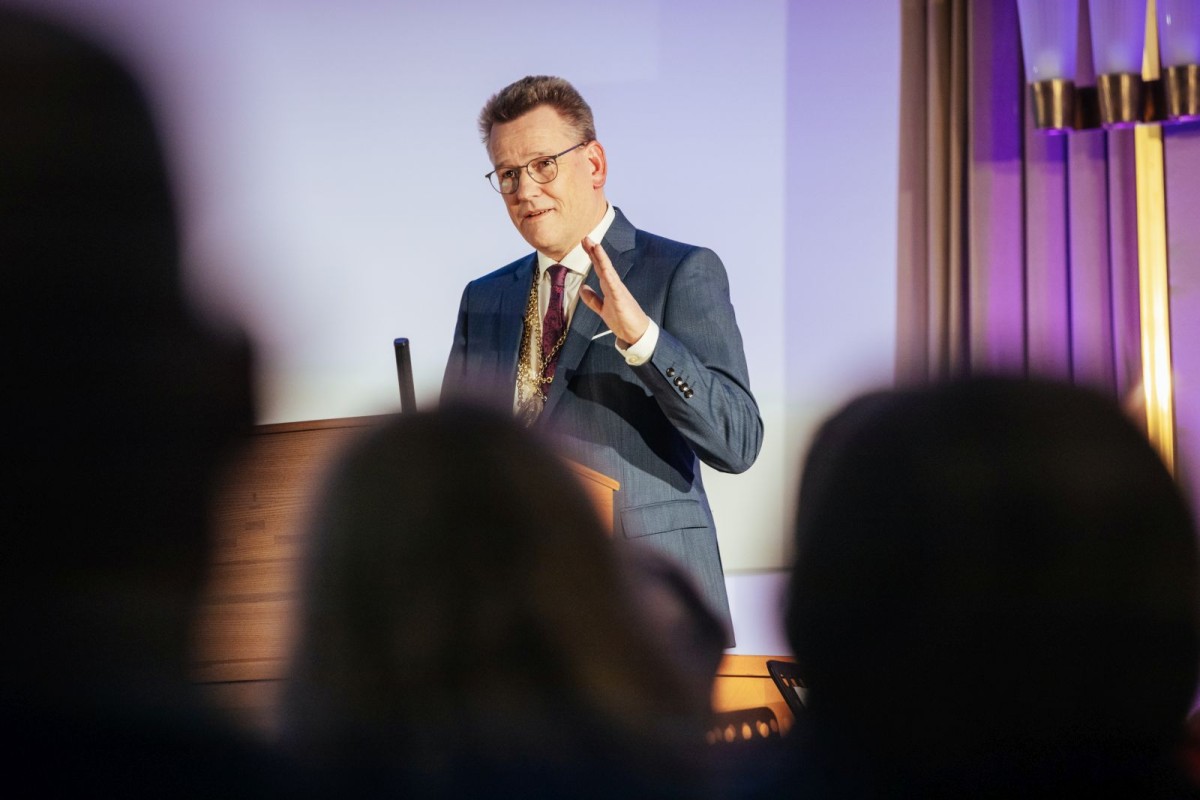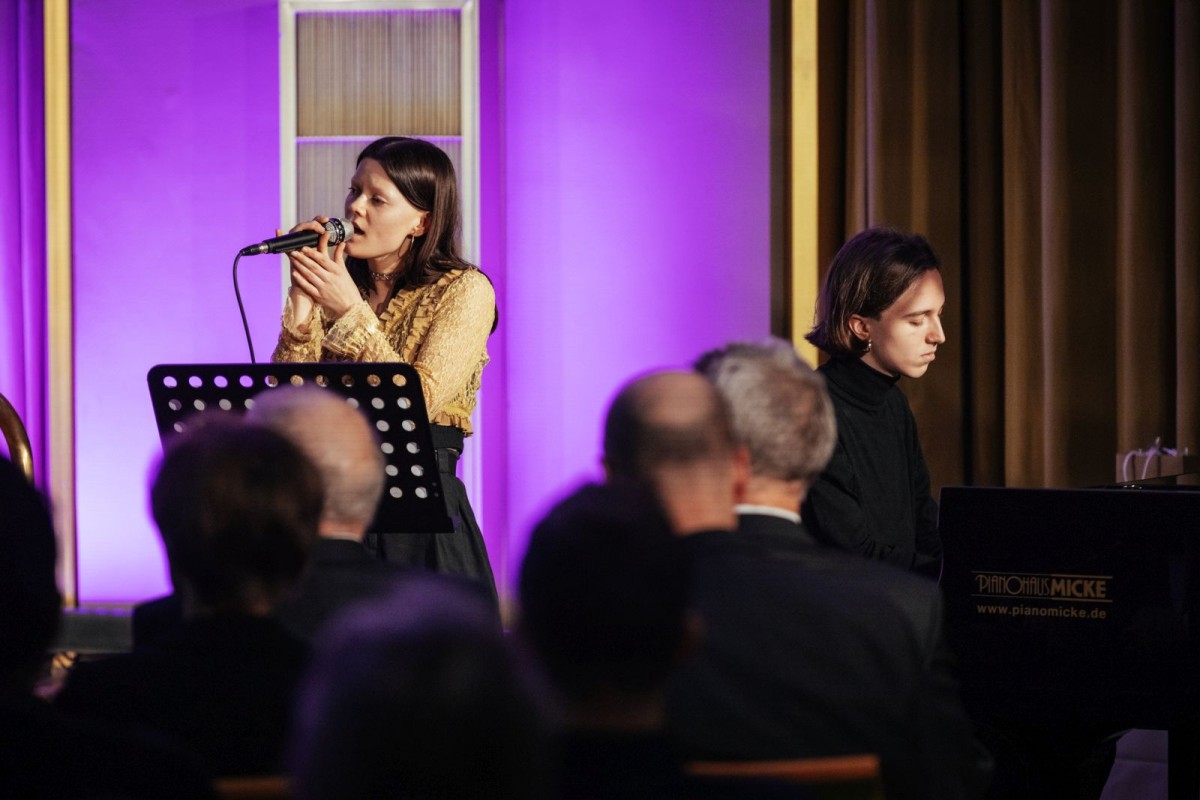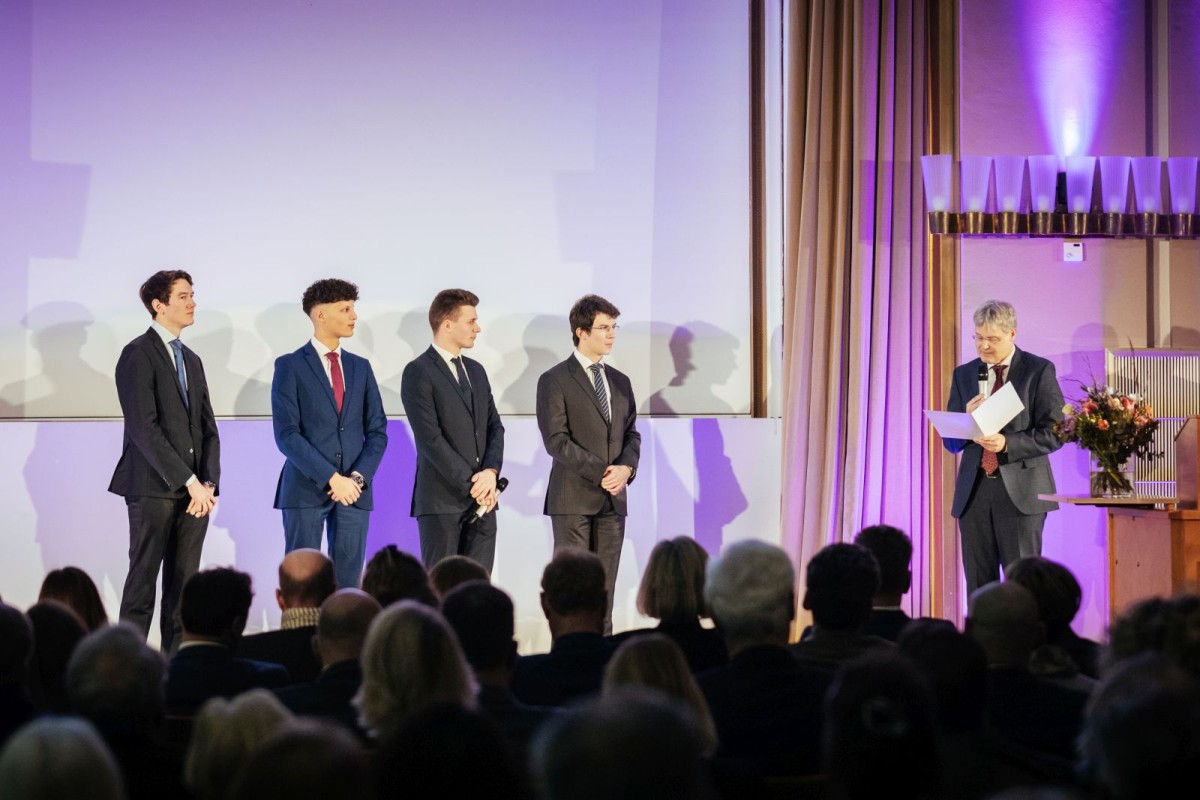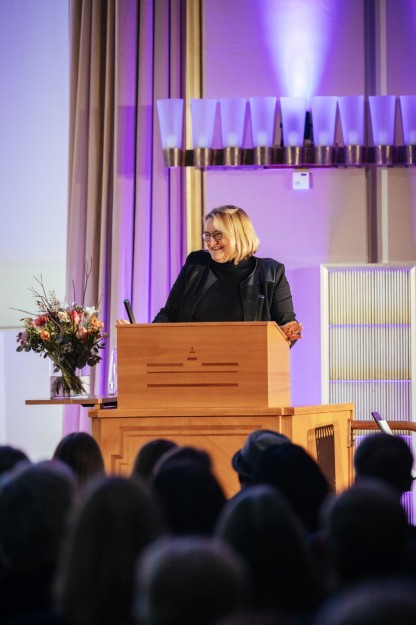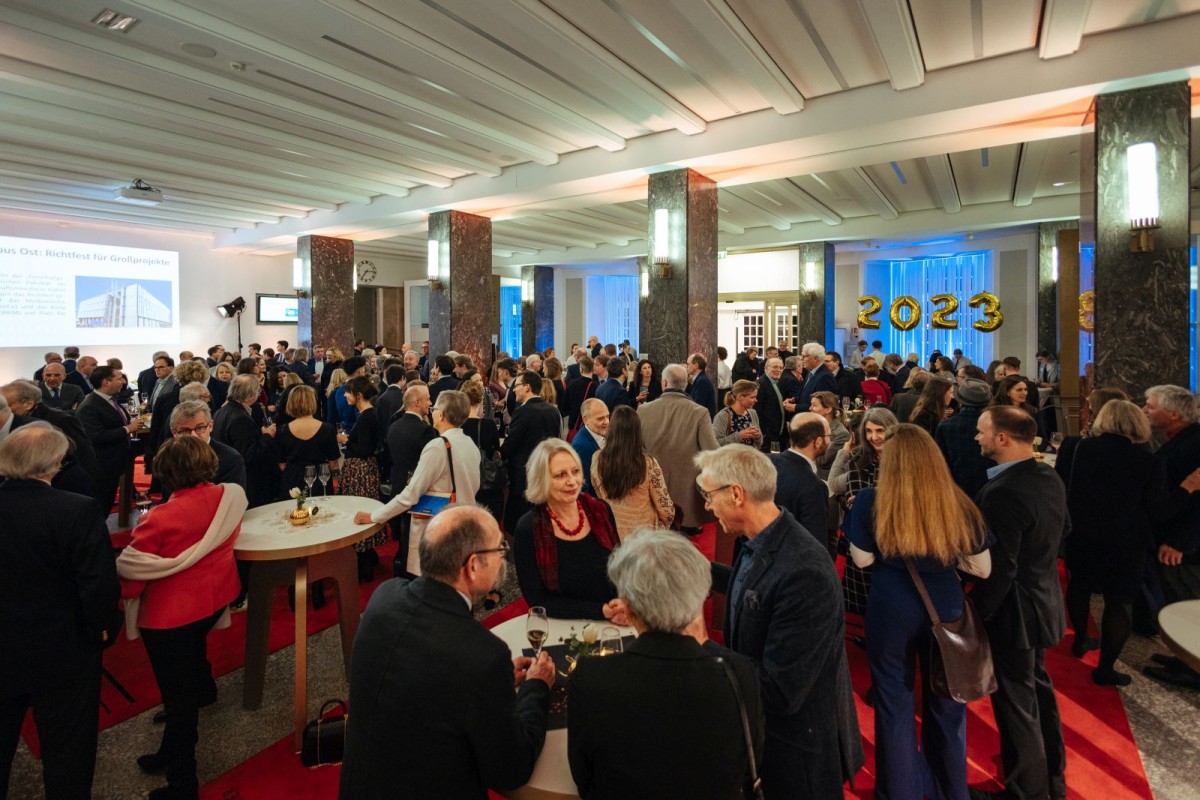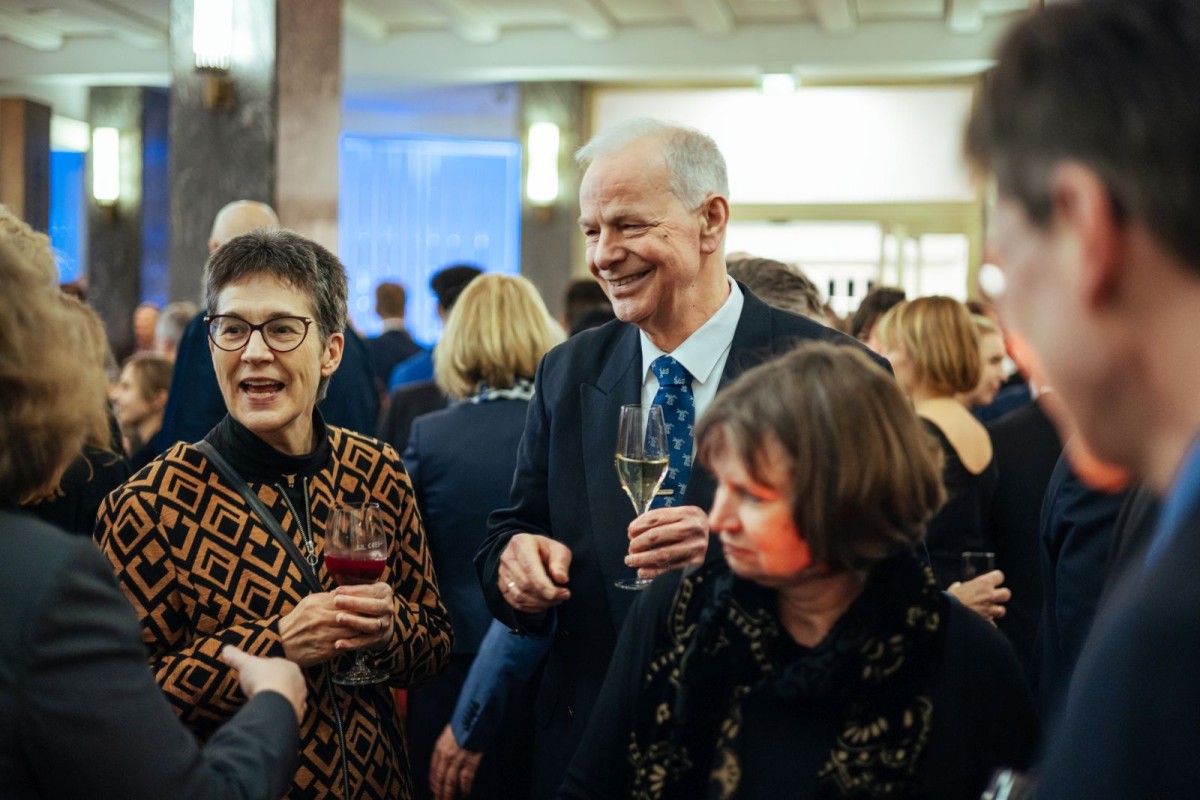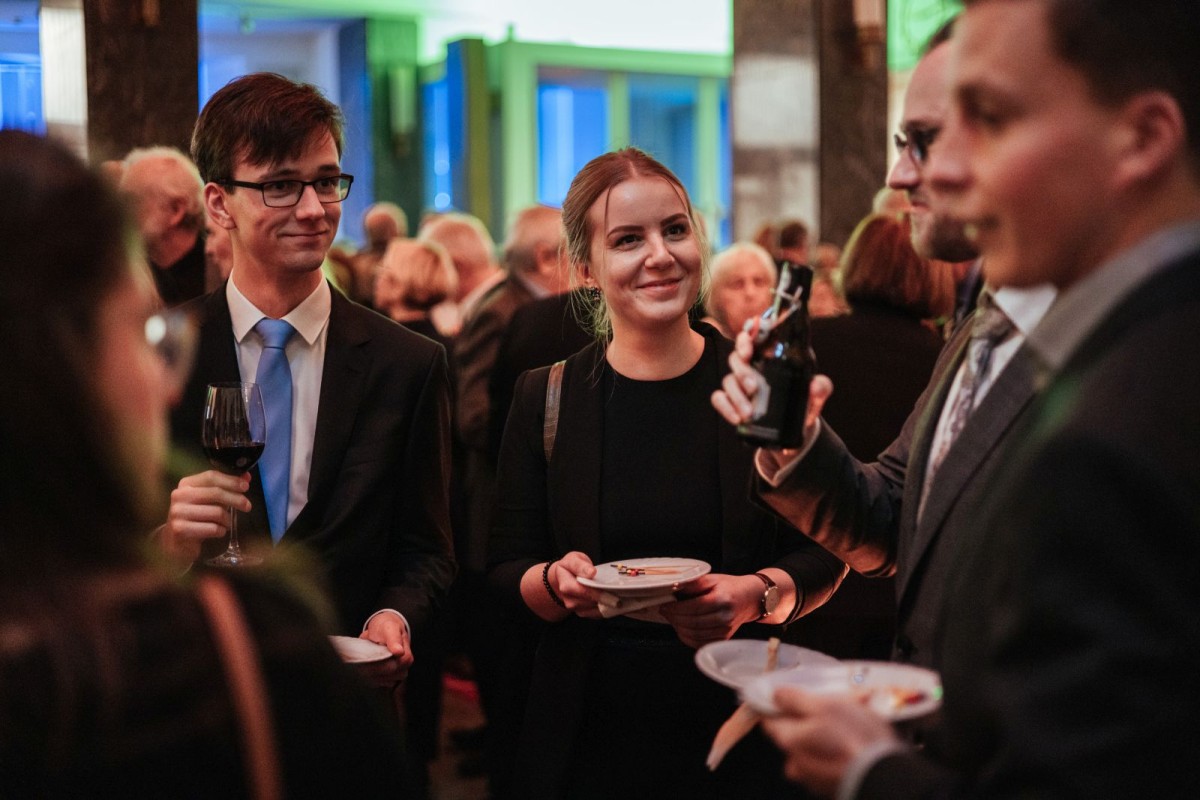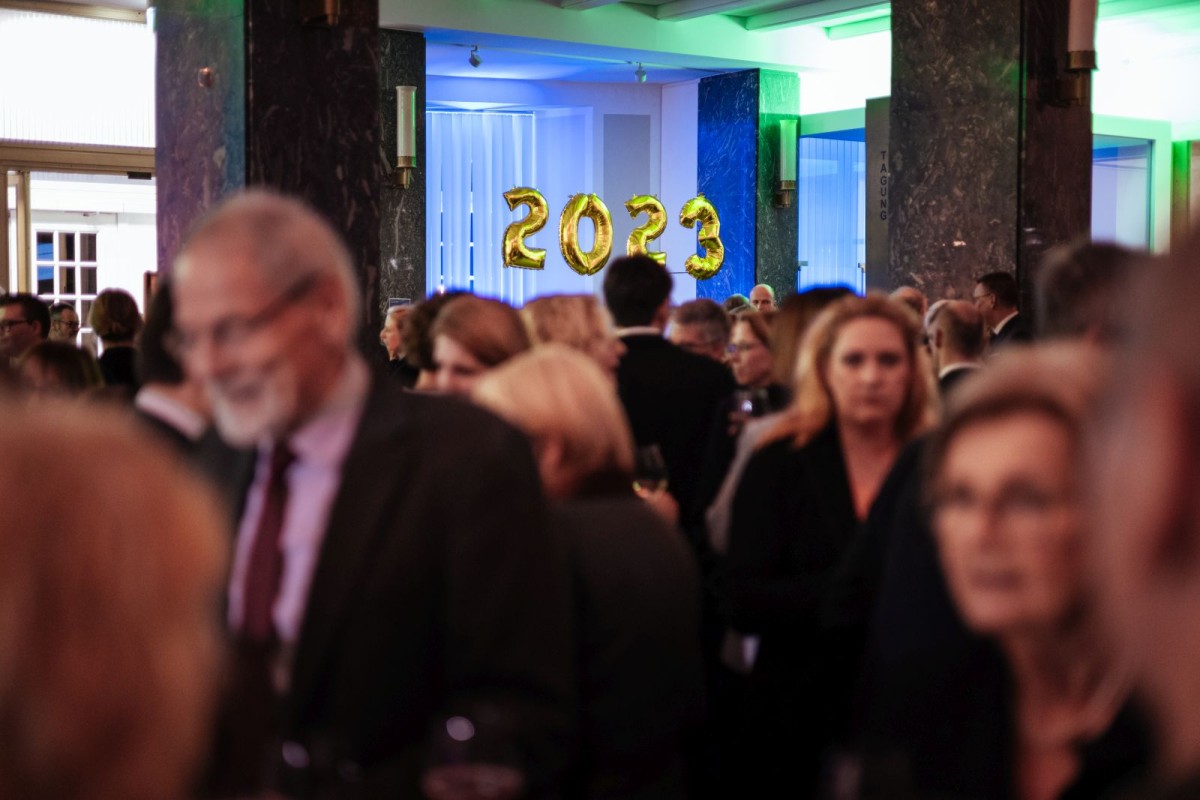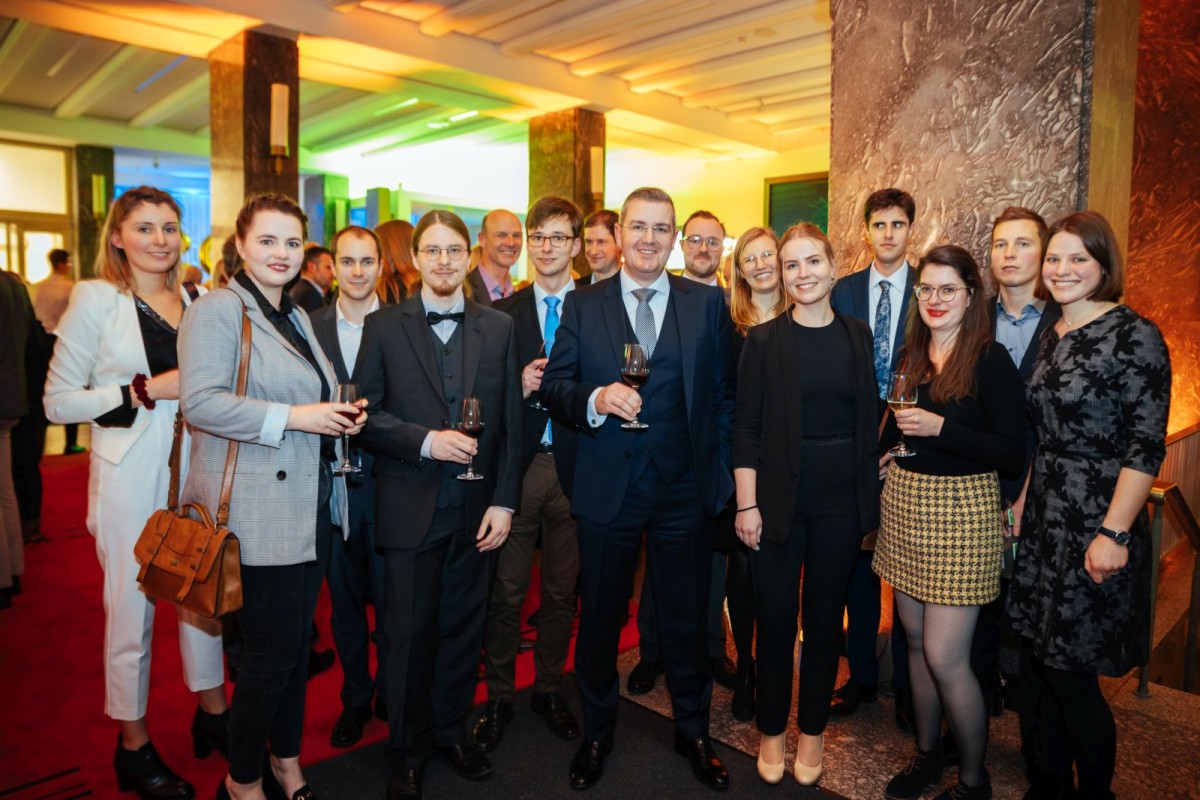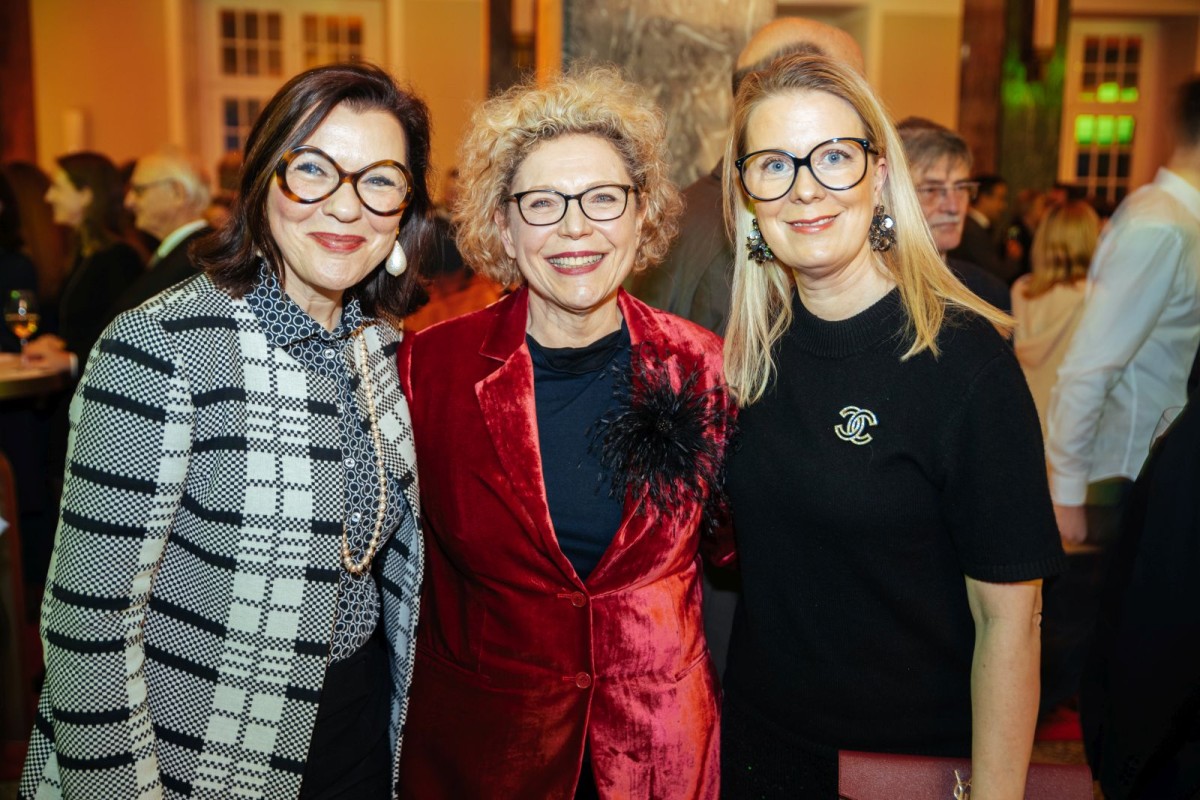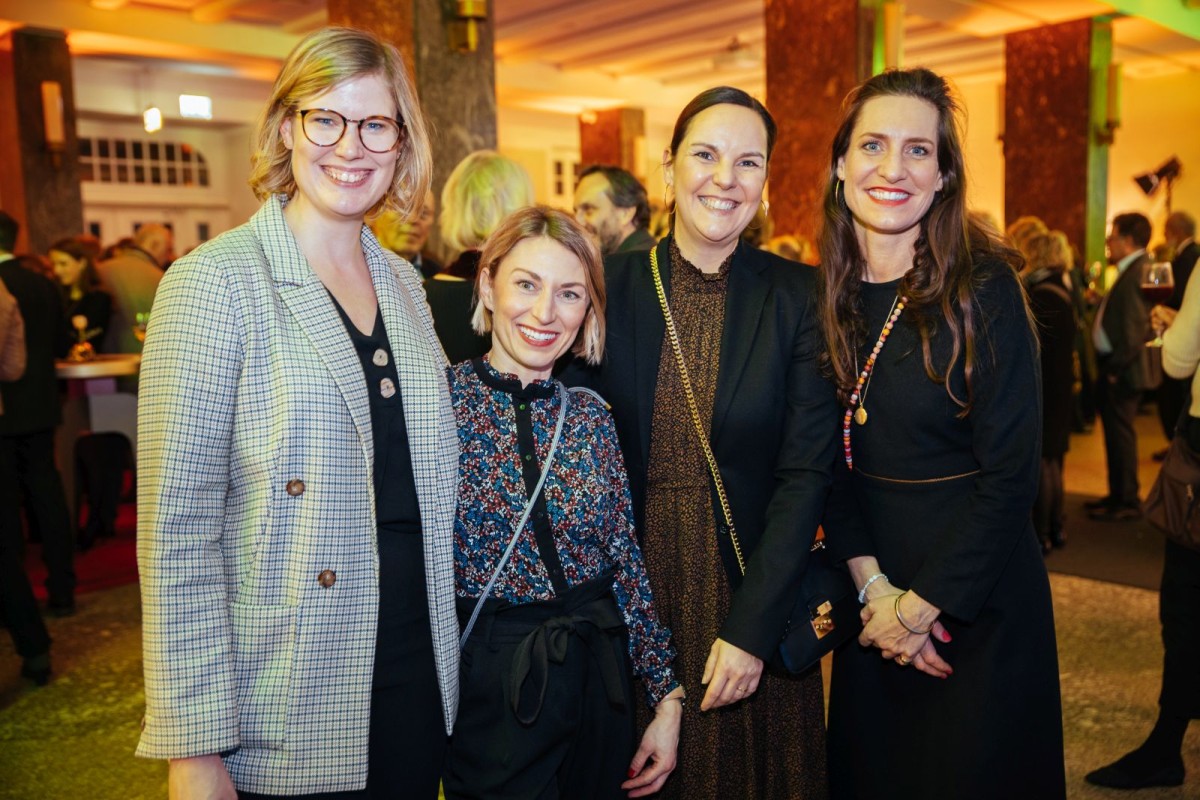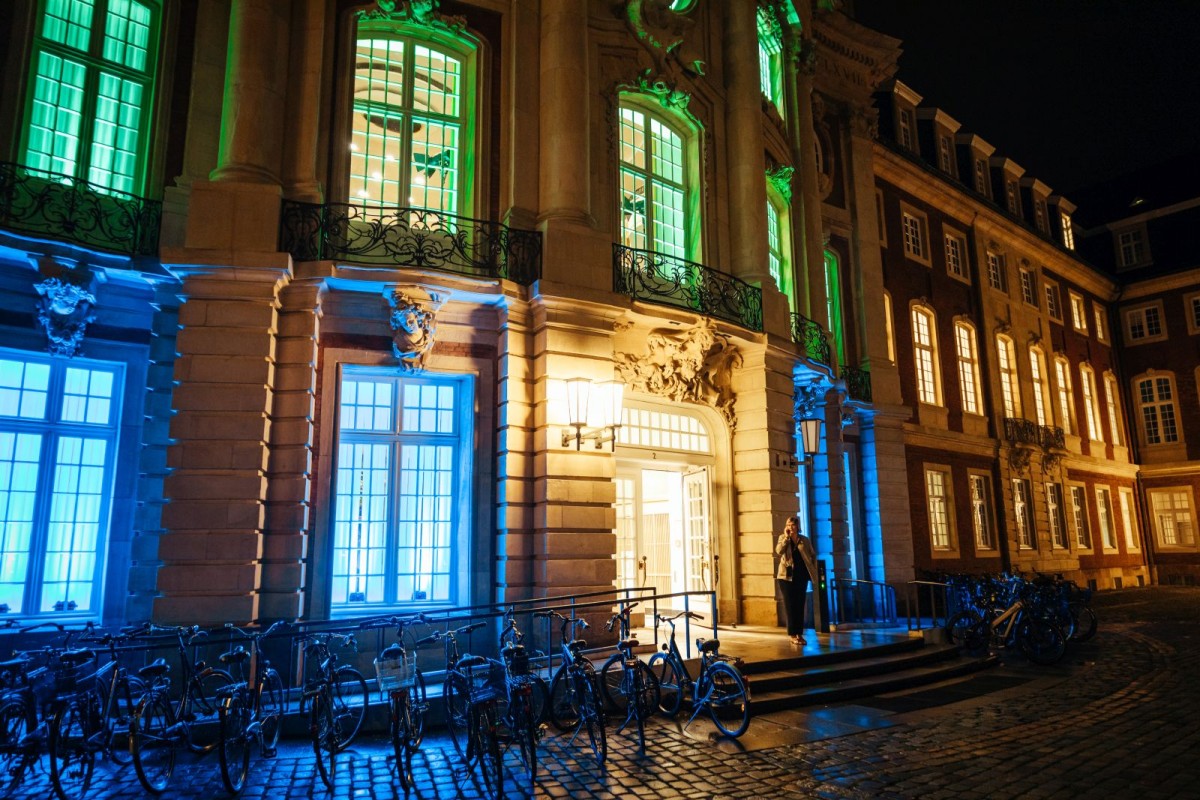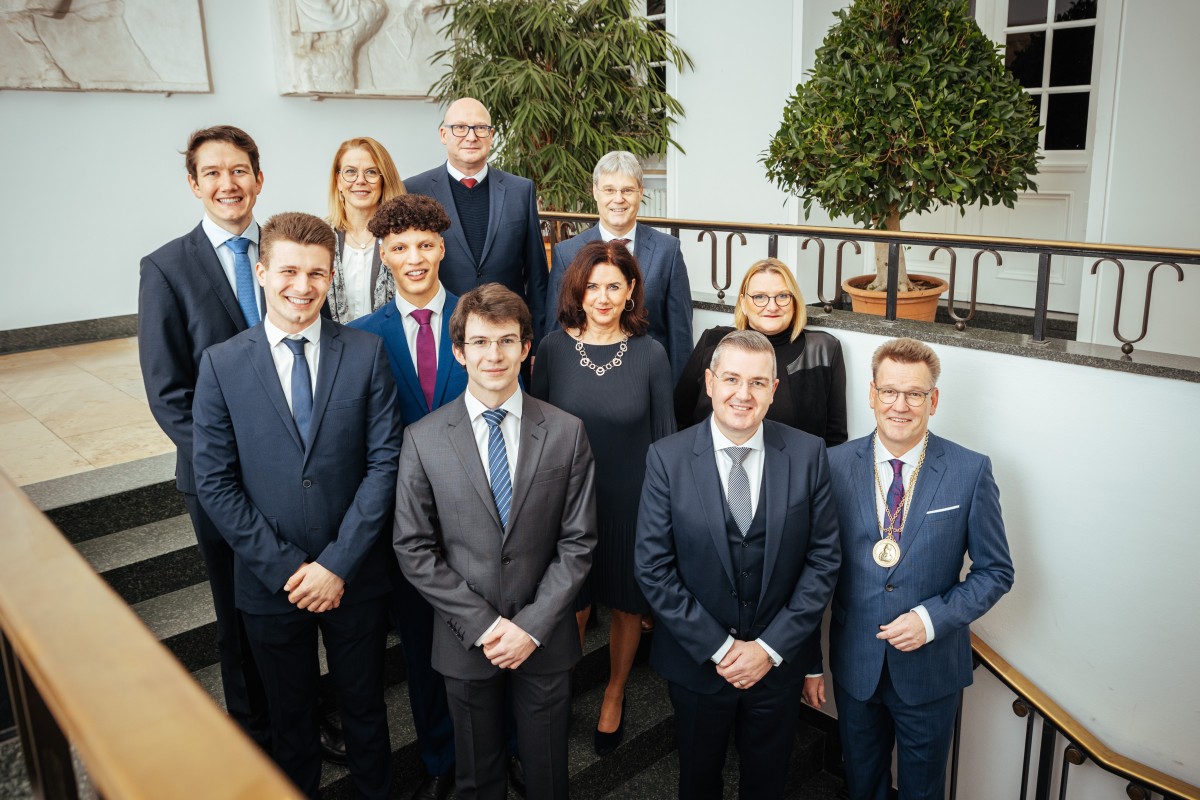
In the words of Rector Johannes Wessels: "It will be a busy year, and an exciting one."
It was finally back after more than three years of Corona: this Friday evening (13 January), the Rectorate of the University of Münster welcomed around 430 guests to this year’s New Year’s Reception in the Schloss. There was music, the Rector’s New Year’s speech and the award of two prizes for work which was shown in two films – all in all, an entertaining 90-minute programme, which ended with a reception in the foyer of the Schloss.
In his speech, Rector Prof. Johannes Wessels looked in particular at what 2023 had in store. He highlighted for example the continuing work on accreditation as a system of future quality assurance in teaching, as well as the planned opening of Münster University’s first childcare facility of its own, the University’s preparations for the next Excellence Competition, and the progress in planning the City and the University’s Music Campus. “It will be a busy year, and an exciting and productive one,” he said.
This year, once again, the New Year’s Reception provided the festive setting for the award of two prizes by the Rectorate – the Research and Student Prizes. A brief outline of the recipients and their work:
Research Prize
Chemist Prof. Ryan Gilmour received the Research Prize 2022 for his outstanding, internationally acclaimed research. The prize is awarded every two years and is worth 30,000 euros. In awarding this prize money, the Rectorate supports the recipients’ research.
Ryan Gilmour holds a Chair of Organic Chemistry and is Professor of Chemical Biology at the Cells in Motion Interfaculty Centre (CiM) at the University of Münster. He has already won several prizes for his research, including an ERC Starting Grant and an ERC Consolidator Grant from the European Research Council. He is also a member of the British Royal Society of Chemistry and of Scotland’s Royal Society of Edinburgh. He is a visiting professor in Britain, the USA and Israel.
Gilmour’s research focuses on the extent to which the structure and function of molecules depend on each other, and on how these properties can be specifically influenced by external stimuli, for example light. The aim of the research is to use the molecules in applications in the fields of catalysis and biomedicine.
Gilmour’s research is guided by processes occurring in nature, for example photosynthesis in plants. He and his team have succeeded in replicating such processes in the laboratory. They use small antenna molecules which are stimulated by light and which transfer light energy to targeted molecules (energy transfer catalysis). The process results in the desired molecule structures. This method has great potential for the sustainable synthesis of important vitamins and medicines. The technology developed by Gilmour is now being used to improve the process for manufacturing Vitamin A. His research on molecule design has also led to the development of new strategies for biomedical imaging which enable better diagnoses to be made of bacterial infections.
Student Prize
The Münster E-Learning Docs (MeDocs for short) received the 7,500 euro Student Prize 2022 for their exceptional engagement in digital teaching. In awarding the prize money, the Rectorate acknowledges and promotes the voluntary work done by students and thus supports cultural and social issues in the University’s surroundings. Maurice Dellin, Niklas Woltering, Philipp Schiller and Matin Furgani accepted the prize on behalf of the whole group.
Before the Corona pandemic, the MeDocs were already busy developing and designing modern digital teaching methods for medical studies. These included not only producing teaching videos for the Department of Vascular Surgery, but also establishing e-learning modules in the Forensic Medicine, General Surgery and Ear, Nose and Throat Departments.
The team is composed largely of medical students. During the Corona pandemic, students from other disciplines were also involved. With the pandemic – and the challenges for University teaching arising from it – the MeDocs became a pillar of support in implementing and maintaining digital teaching. The Faculty of Medicine was aiming at a synchronous transmission of all teaching events. This involved a huge technical, logistical and operative effort. The MeDocs adapted the technology in lecture rooms, wrote computer programmes and provided support for around 900 lecturers on a daily basis, from 7:30 in the morning to 8 o’clock in the evening, helping them with their online teaching in the two transmission centres on the Medical Faculty campus. Parallel to this, the team developed new ideas and methods for the digitalisation of special teaching formats in medical studies – for example teaching at patients’ beds, virtual microscopy or practical sessions in the field of microbiology. The team is continuing to work on innovative ideas for digital university teaching, for example by means of video productions and podcasts.

